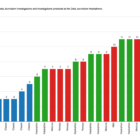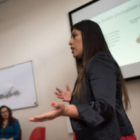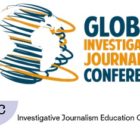GIJC17
Research: “TPA: A Successful Method of Teaching Top-Notch Investigative Journalism”
|
This is a research paper that was presented at the Global Investigative Journalism Conference 2017 Academic Track, which IJEC organized and covered.
Paulette Desormeaux Parra discusses TPA, a teaching method she developed in Chile based on her own experience as a reporter and what she learned at the academic track of the 2015 Global Investigative Journalism Conference.
“This article examines an innovative method that has proved to be consistently successful at teaching investigative journalism to undergraduates in Pontificia Universidad Católica de Chile. With a practical approach to knowledge and learning, this method of teaching has enabled students to systematically produce relevant investigative journalism stories, focusing on data, access to open sources and Freedom of Information Act requests.”





